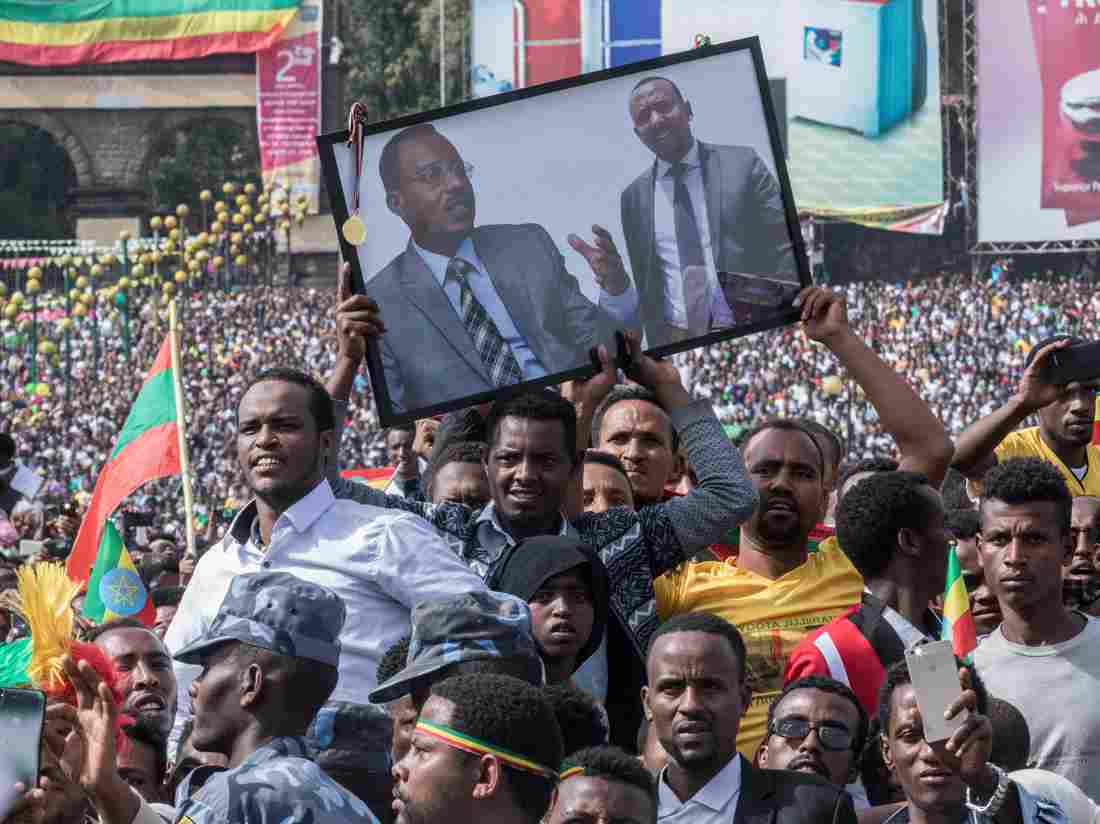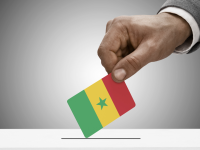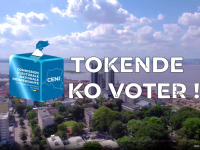A Day of High Anticipation Today marks a momentous occasion in Senegal as citizens gather…

Ethiopia, Abiy Would Face Electoral Defeat if Elections Were Free and Fair
The upcoming June 21 elections will be characterized by a very low turnout at the polls. There are two main reasons for this. The first is the blatant boycott of the population; 38% of eligible voters have not registered to vote: about 19 million voters out of an electoral body of 50 million. The second is the obvious political exclusion of a large number of the electorate implemented by the government. The Tigray region was excluded ex ante: a further 2.6 million eligible voters who will not be able to cast a ballot. Elections will be postponed to September in approximately 28 electoral districts: circa 1.8 million voters.
Elections will be held in September also in the the regions of Harari (Harari People’s National Regional State) and the Somali Region as reported Thursday by the National Electoral Board of Ethiopia (NEBE) citing unspecified “irregularities” and problems with the ballots. That adds up to another 3.8 million voters.
Along with the Tigray, the other two regions excluded from the June 21 elections represent 63 seats out of 547. Another 79 districts have been repressed on a national level because claimed not to be in compliance with the NEBE. Another 1.2 million votes. In total, between voters who have not registered and electorates excluded from the 21 June elections, 28.4 million people will not vote.
It is clear that under these circumstances, the elections will not be representative. African diplomatic sources warn that the victory of Prime Minister Abiy and his Prosperity Party, controlled by the fascist Amhara, will be flaunted the world over. The victory will probably be declared without even waiting for the results of the postponed September elections in many electoral districts and regions. The victory has already been decided before the polls have even opened and which some European governments, who up till now have not stated their true opinions regarding the Ethiopian tragedy, would be ready to approve.
Would Prime Minister Abiy and the Prosperity Party win the elections if they were held in a climate of peace and were truly inclusive? The answer is NO.
To prove this, a survey by Afrobarometer on a sample of young people between 18 and 35 conducted in August 2020 before the outbreak of the various conflicts, was published in May and completely ignored by the central government and the majority of international news outlets. Afrobarometer is a non-partisan, pan-African research institution conducting public attitude surveys on democracy, governance, the economy and society in 30+ countries repeated on a regular cycle. It is the world’s leading source of high-quality data on what Africans are thinking.
This survey is extremely significant because over 70% of the Ethiopian population is under 30 years old. The survey reveals that 53% of Ethiopians is convinced that the government is handling the economy poorly. In the past five years, Ethiopian currency has halved compared to the US dollar and the Euro raising the cost of living. 54% of those interviewed said they suffered moderate or high levels of lived poverty. The annual growth rate has dropped drastically by 4 percentage points since 2017 reaching 6.1%. the drop can be explained by the COVID-19 pandemic. The annual percentage does not include the last two months that correspond to the beginning of the conflict in Tigray.
62% of those interviewed accuse the government of poor performance in creating new jobs. Officially, unemployment is at 2.08%. This data is blatantly surreal; it’s enough to compare it to unemployment in Italy that stands at 11.69%
Prime Minister Abiy is using manipulation tactics on unemployment data used by the Tigray People’s liberation front (TPLF) in the past 18 years. Since 2003, the official level of unemployment has registered an unreal average of 2.375%. Some more realistic estimates claim that unemployment is at 30% and that underemployment (subsistence, seasonal and unstable jobs) is 54%
Almost 60% of the people interviewed said that the government ignores the conditions and needs of youths. Even here, Prime Minister Abiy is continuing the policies began by the TPLF in 2012 to drug youths through the widespread and very cheap use of Chad, a plant that, if chewed for a long time, has the same effects as amphetamines. Chad, widely used in the Horn of Africa and East Africa, is grown in Ethiopia and represents one of the most consumed and exported products. You can buy it in “natural products” stores across the entire country which in actual fact, are part of a well-structured network of legalized drug distribution. The aim is the same as when heroin entered the markets in the United States and Europe during the seventies and eighties: drug youths to prevent them from organizing and becoming a security risk that could arise from economic and political demands.
Trust in the current Ethiopian government coalition has practically collapsed. From 78% in 2018 to 47% in August 2020. About 71% of young people (including those who still support Abiy) believe that the current parliament and government are corrupt. If one looks at this specific question in detail, we find that trust in Prime minister Abiy is 36% and that in the Prosperity Party is 22%. Trust in the Federal Police and Army are 24 and 45% respectively. These decreases in percentages are probably due to the crimes committed by both National Defense units in the past seven months in Tigray and Oromia.
The young people surveyed also showed a progressive loss of trust in regional administrations and in general they feel excluded from political participation. 75% of those interviewed said they only trusted the religious leaders in the four monotheistic religions, (the Catholic Church, the Orthodox Church, Islam and Protestants), while 62% said they trusted traditional leaders. Many young people also said they did not trust regional and national bodies to represent them or voice their demands. The youths said they were not consulted when laws were enacted including laws that directly affected their lives.
The survey, which was ignored by the Addis Ababa government and was given little attention by international news outlets, shows without a shadow of a doubt that the prime Minister, his party and the institutions managed by them lack legitimacy, inclusiveness and representation and are widely mistrusted by the majority of young people.
Youth movements are asking for greater inclusion. They demand more representation in the choice of government, more democracy, and accuse Abiy’s government of refusing to listen to their issues and to find a solution to them. They also demand broader access to Internet and social media networks. Currently, only 30% of the Ethiopian population has access to Internet. It is under constant monitoring and censorship by an illegal computer espionage system created 10 years ago by Abiy Ahmed Ali himself when he was at the loyal service of the TPLF high-ranking officials.
Another important figure is trust in the NEBE: a mere 15% and complete mistrust in the democratic voting system (postponed at the time) that expresses an outcry for free and fair elections. As for the policy promoted by Abiy to substitute the current ethnic federalism with a central government, 61% of the youths interviewed said they preferred federalism to a unitary system of government.
The survey conducted by Afrobarometer before the conflicts in Tigray and Oromia gives us an idea of how many votes Abiy and the Prosperity Party could get: from 36 to 22%. Abiy is well aware of his unpopularity even in the main Amhara and Oromo ethnic groups. For this reason, he is using an exclusion strategy that has bluntly been put into force these past few weeks. I bet that the June 21 election results will be quite imaginative. I’m expecting to see percentages of at least 70% in favor of the Prosperity Party, obviously.





